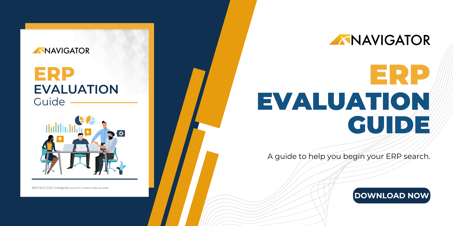
Examples of Companies That Use ERP
Enterprise resource planning (ERP) platforms - and particularly online ERP software - is used throughout the spectrum of business functions, from finance to supply chain management and human resources to sales. Some of the top ERP systems are used by brands you have certainly heard of, including Amazon and Starbucks. This article will dive into the examples of companies that use ERP successfully.
In this guide, we will look at case studies from some of the best-known companies that use ERP successfully and showcase how ERP systems benefit supply chain management in complex and global organizations.
Which Companies Use ERP Software?
Almost every business can benefit from Cloud ERP as a tool to automate processes, streamline workflows, and facilitate faster decision-making. It is used by small companies, mid-market organizations, and enterprises scaling up to accommodate increasing demand and market complexity. Industries where ERP platforms are commonly used include:
- Manufacturing
- Retail and e-commerce
- Not-for-profit organizations
- Healthcare
ERP is not restricted to one sector or one particular area of trade. It allows enterprise-wide data sharing and integrations to reduce inefficiencies, drive lower costs, and boost revenue.
ERP Case Studies
One of the easiest ways to showcase performance improvements is to consider real-world case studies and understand how these brands use ERP to gain a competitive advantage. Here are the examples of companies that use ERP:
Amazon ERP Case Study
As the globally dominant e-commerce marketplace, Amazon uses an SAP platform for its ERP needs. SAP is one of the leading ERP systems for managing complex operations, as it incorporates a wide range of tools for managing procurement, identifying logistical requirements, handling financial reporting, and automating the customer experience throughout the order fulfillment process.
ERP software is customized to the business. In this case, ERP manages dual third-party and direct-order fulfillment, tracks stock levels, initiates automatic replenishment orders, and handles millions of sales and customer interactions every day.
Walmart ERP Case Study
Walmart is another complex, large organization that requires an automated solution to manage physical stores, discount outlets, e-commerce functions, and smaller localized markets, as well as numerous brands. The supply chain includes thousands of vendors and suppliers, with whom managers need to liaise to keep the shelves stocked without excess inventory and increasing organizational costs.
Walmart uses a Microsoft ERP with cloud-based enterprise management to control resources, monitor warehousing capacity, and integrate with existing software tools.
Starbucks ERP Case Study
Starbucks uses an Oracle ERP system to automate administrative functions and everyday business processes, including supply chains, finance, procurement, and project management.
The platform delivers real-time information, such as:
- Operational reports
- Sales and revenue data
- Expense analysis
- Stock management metrics
Like other ERP software suites, the solution allows the chain to maintain minimal stocks while meeting customer demand and tracing deliveries to maintain efficiencies.
Harry's ERP Case Study
Harry's, a consumer products and direct-to-consumer brand, has grown its backend systems and become a shaving products unicorn with the help of SAP Business ByDesign and now S/4 HANA Cloud.
Harry's has a growth rate that most companies would envy and a valuation that makes it a New York-based unicorn. For a consumer-packaged goods firm, that's a nice trick. Navigator Business Solutions, a gold SAP partner with supply chain expertise, helped Harry's scale. Read Harry's full success story here.
Rothy's ERP Case Study
Rothy's, a rapidly scaling shoe startu,p laid the foundation for growth with SAP Business ByDesign. In just three years, the startup has gone from an idea and a small stall in San Francisco’s Ferry Building to pulling in $140 million in annual revenue and capturing a market valuation of roughly $700 million. Rothy’s isn’t a unicorn quite yet, but it is getting there in a hurry.
Read Rothy's full success story here.
Choosing an ERP Solution for Your Company
The three ERP system options mentioned—SAP, Microsoft, and Oracle—are the largest ERP solutions on the market. Choosing the most suitable application for your business depends on your organization's focus, the challenges you face, and how you currently manage your supply chain, human resources, and financial functions.
These case studies demonstrate how ERP is a key tool used across industries and sectors, supporting growing businesses and multibillion-dollar enterprises in achieving outstanding efficiencies and management control.
If you're researching and evaluating ERP solutions, here is a complimentary guide to help you navigate your ERP research journey.
www.nbs-us.com | info@nbs-us.com | (801) 642-0123


